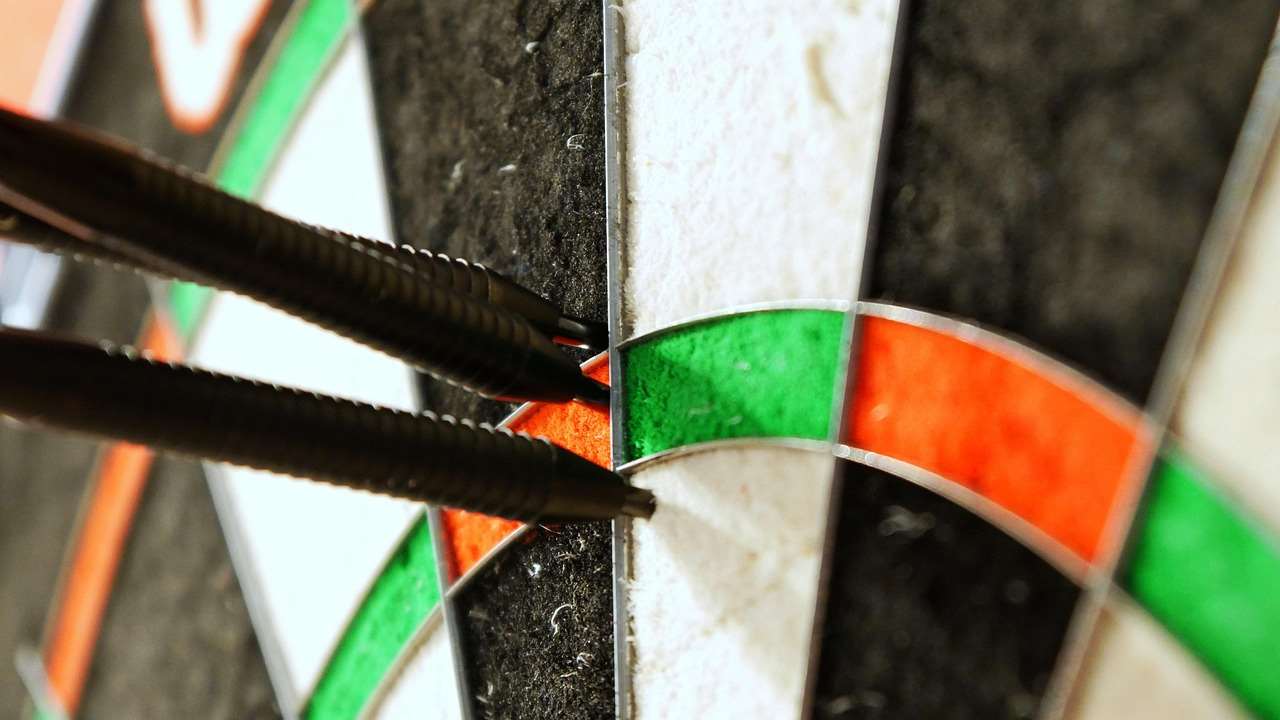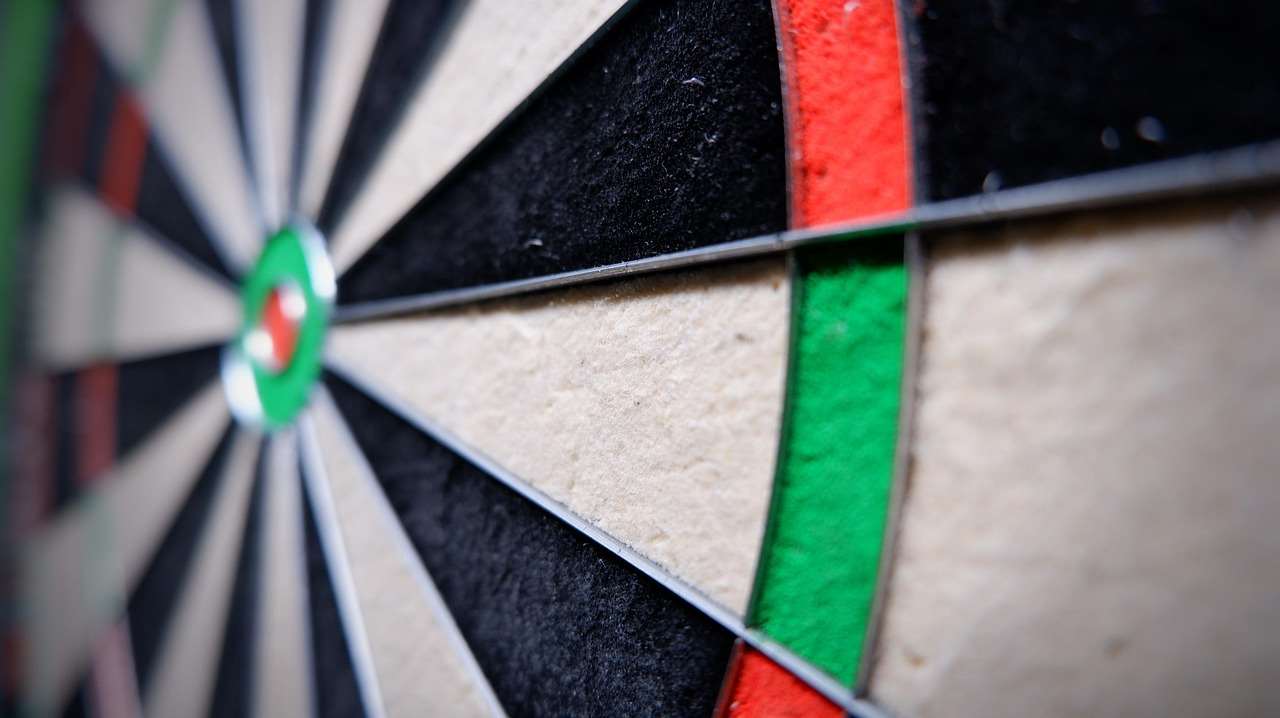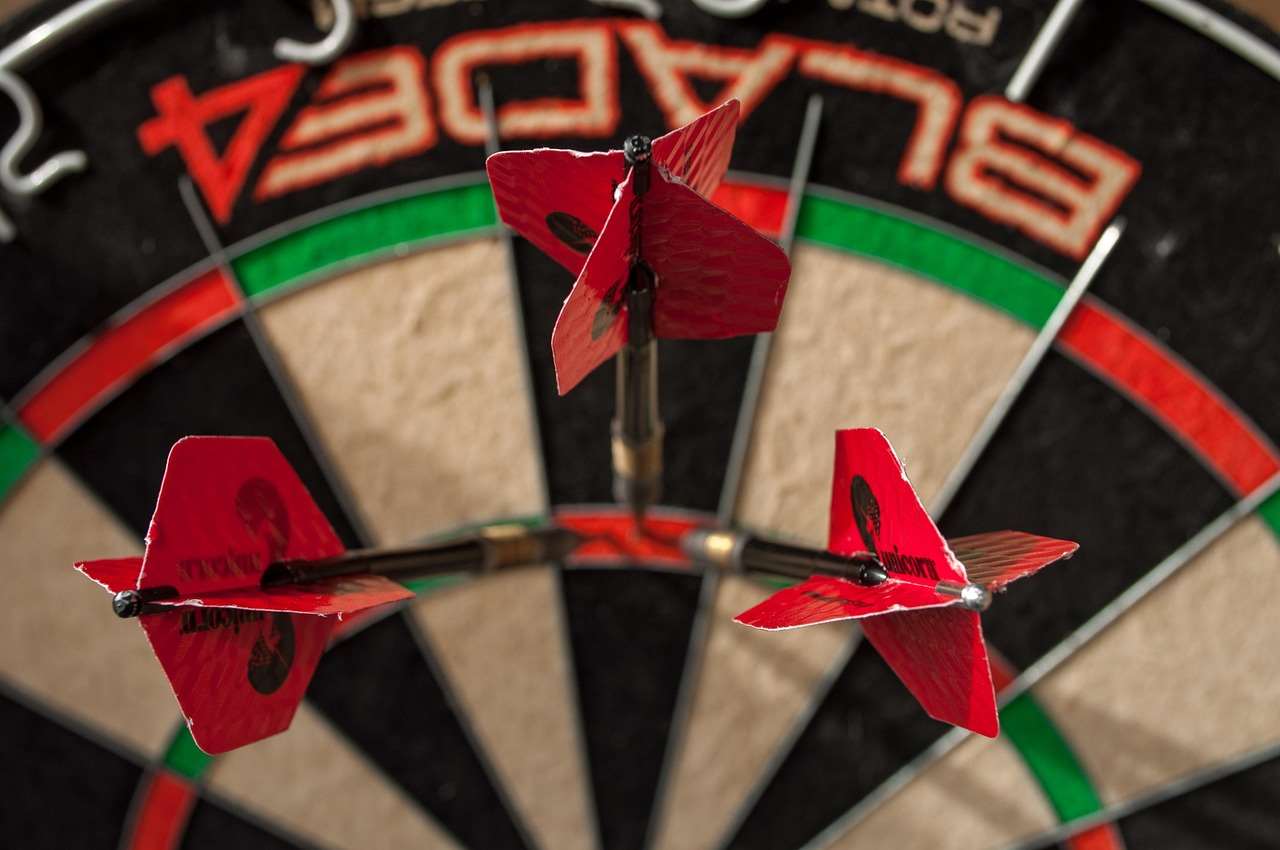No, darts are not currently an Olympic sport. While incredibly popular globally, with millions of fans and professional players, the question of ‘are darts an Olympic sport’ remains a resounding no. This article will delve into the reasons behind this, explore the history of darts, examine its potential for Olympic inclusion, and discuss the unique challenges and opportunities this popular game presents.
⚠️ Still Using Pen & Paper (or a Chalkboard)?! ⚠️
Step into the future! The Dart Counter App handles all the scoring, suggests checkouts, and tracks your stats automatically. It's easier than you think!
Try the Smart Dart Counter App FREE!Ready for an upgrade? Click above!
The global popularity of darts is undeniable. Millions watch professional tournaments, and countless more enjoy the game casually in pubs and homes. Yet, despite its widespread appeal and dedicated following, the question of whether it meets the criteria for Olympic inclusion remains a complex one. Let’s explore some of the key factors influencing this decision.
Are Darts an Olympic Sport? Understanding the Olympic Selection Process
The International Olympic Committee (IOC) has specific criteria for selecting sports for inclusion in the Olympic Games. These criteria are rigorous and designed to ensure that the chosen sports align with the values and goals of the Olympic movement. Are darts an olympic sport? Currently, they do not meet all the required criteria, primarily focusing on global reach and participation across genders and age groups. While darts has a large and passionate fanbase, its international reach and representation of women and young athletes needs further expansion to meet the IOC’s expectations.
Furthermore, the IOC considers factors such as the sport’s popularity, its governance structure, its media appeal, and its suitability for television broadcasting. Darts excels in several of these areas, particularly in media appeal and television broadcasting, which significantly benefits the sport’s global awareness. However, the governance structure and the global reach still need further improvements to be considered more widely.

The History of Darts: From Pub Game to Global Phenomenon
The history of darts is a fascinating journey, evolving from a simple pub game to a globally televised spectacle. Its roots are humble, tracing back centuries to simple games of throwing missiles at targets. The modern game, with its standardized rules and professional circuits, emerged in the 20th century, gaining massive traction especially in the UK. Over time, the game evolved, developing sophisticated strategies and techniques that have elevated darts to a sport demanding skill, precision, and mental fortitude.
The rise of professional darts leagues, such as the Professional Darts Corporation (PDC), has played a crucial role in transforming the game’s profile. These leagues organize major tournaments with substantial prize money, attracting some of the world’s most talented players and drawing in a global television audience. The dramatic nature of the matches, coupled with the compelling personalities of the players, has helped generate significant media attention, often exceeding traditional sporting events.
Challenges and Opportunities for Darts’ Olympic Bid
While the question ‘are darts an olympic sport’ is currently answered with a “no,” there are opportunities for the game to strengthen its position. This includes a focused strategy to improve global representation in terms of both gender and age. More effort is required to increase participation and recognition in countries where the game is currently less prevalent, and in the promotion of women’s darts at the highest levels.
Another key challenge lies in adapting the existing structure and format to better align with the Olympic ideals. The current competitive format might need modifications to ensure greater participation and a clear path to qualification for the Olympic Games. In essence, demonstrating a global appeal that is inclusive and reflective of the Olympic spirit, is critical for future Olympic consideration.

Improving Global Reach and Participation
To address the question of “are darts an olympic sport?”, the global governing bodies need to implement strategic initiatives to expand the game’s reach into new territories. This requires investment in grassroots programs, coaching development, and international competitions designed to increase participation, particularly among women and younger generations. The promotion of darts in schools and communities, coupled with initiatives to support emerging talent, could significantly enhance the sport’s global reach.
The success of other sports, such as skateboarding, in securing Olympic inclusion provides a valuable blueprint for darts. These success stories highlight the importance of promoting the sport’s inclusive nature, youth appeal, and accessibility to a broader audience. A well-structured strategy, focusing on the youth and women’s sectors, is crucial to increase diversity and representation, which is a vital factor for the Olympics.
The Appeal of Darts: Why It Deserves Consideration
Darts possesses several characteristics that make it a compelling candidate for Olympic inclusion. Its relatively low cost of entry means that it’s accessible to individuals from diverse socioeconomic backgrounds. It is also a sport that can be enjoyed by people of all ages and abilities, showcasing inclusive potential.
The fast-paced, highly competitive nature of professional darts makes for exciting and engaging television. The sport also benefits from a strong digital presence, through live streaming, social media engagement, and online gaming platforms. The advent of Digital dart score app has also played a role in enhancing accessibility and engagement.

The Thrill of Competition and Spectators Engagement
The tension and excitement of a close darts match are captivating for spectators. The precision required, the mental strength to maintain focus under pressure, and the unpredictable nature of the game all contribute to its high entertainment value. Furthermore, the personalities of the players, often characterized by charisma and showmanship, add to the overall appeal, enhancing the audience’s excitement.
Many professional darts players have cultivated strong and recognizable brands, using social media and engaging fans, fostering a level of connection rarely seen in other sports. This connection transcends the game itself, enhancing its appeal for sponsors and TV networks and promoting further growth and recognition for the sport globally. This enhanced viewer engagement is a significant asset in the ongoing debate about ‘are darts an olympic sport?’
Comparing Darts to Other Olympic Sports
While darts might seem unconventional compared to some established Olympic sports, its characteristics align surprisingly well with several current Olympic events. For instance, the precision and concentration needed in darts are comparable to those required in archery or shooting. The strategic thinking and mental fortitude demanded by the game mirror those of chess, which is an officially recognized sport by many organizations, including FIDE (Fédération Internationale des Échecs).
Furthermore, darts is a sport where individual skill is paramount, similar to sports like tennis or badminton. Yet unlike those games, the cost barrier to entry and practice for darts is dramatically lower, broadening its potential inclusivity. This could be a significant factor in the debate about “are darts an olympic sport?”

The Future of Darts and its Olympic Prospects
The future of darts and its potential for Olympic inclusion hinges on several key factors. Continued growth in global participation, particularly among women and younger athletes, is paramount. Improvements to the governance structure and the promotion of international cooperation are essential to enhancing the sport’s international standing. Effective marketing and media strategies can help increase the game’s visibility and appeal to a wider audience.
A concerted effort by the sport’s governing bodies to address the IOC’s selection criteria is crucial. This involves not just expanding global participation but also demonstrating the sport’s long-term sustainability and its alignment with the Olympic values. While the answer to “are darts an olympic sport?” remains negative for now, the future might hold a different outcome if these strategic initiatives are successfully implemented.
While there are many positive aspects to consider, the challenges should not be understated. For example, adapting the current scoring system and match format to meet Olympic requirements, while retaining the excitement of the game, might prove challenging. There also needs to be an increase in global awareness and participation across diverse demographics to meet the IOC’s strict criteria. But with careful planning and strategic implementation, the future potential for the game to be included is promising.

Conclusion: The Ongoing Debate of “Are Darts an Olympic Sport?”
In conclusion, while the question “are darts an olympic sport?” currently has a negative answer, the game possesses many qualities that make it a strong potential candidate. Its global popularity, exciting gameplay, and accessibility make it a compelling option for future Olympic consideration. However, several challenges remain, including increased global participation, improved governance structures, and enhanced alignment with Olympic ideals. By addressing these challenges strategically and consistently, darts can significantly improve its chances of securing a place in the Olympic Games in the future. The focus must remain on increasing global participation, promoting diversity, and ensuring the game’s long-term sustainability. You can explore other related articles such as darts scoring rules sets and legs or darts match play final.
To stay updated on the latest developments in the world of darts and its potential Olympic journey, consider subscribing to relevant sports news outlets and following the official social media channels of major darts organizations. You might also find our guide to outdoor dartboard cabinet interesting!
Hi, I’m Dieter, and I created Dartcounter (Dartcounterapp.com). My motivation wasn’t being a darts expert – quite the opposite! When I first started playing, I loved the game but found keeping accurate scores and tracking stats difficult and distracting.
I figured I couldn’t be the only one struggling with this. So, I decided to build a solution: an easy-to-use application that everyone, no matter their experience level, could use to manage scoring effortlessly.
My goal for Dartcounter was simple: let the app handle the numbers – the scoring, the averages, the stats, even checkout suggestions – so players could focus purely on their throw and enjoying the game. It began as a way to solve my own beginner’s problem, and I’m thrilled it has grown into a helpful tool for the wider darts community.